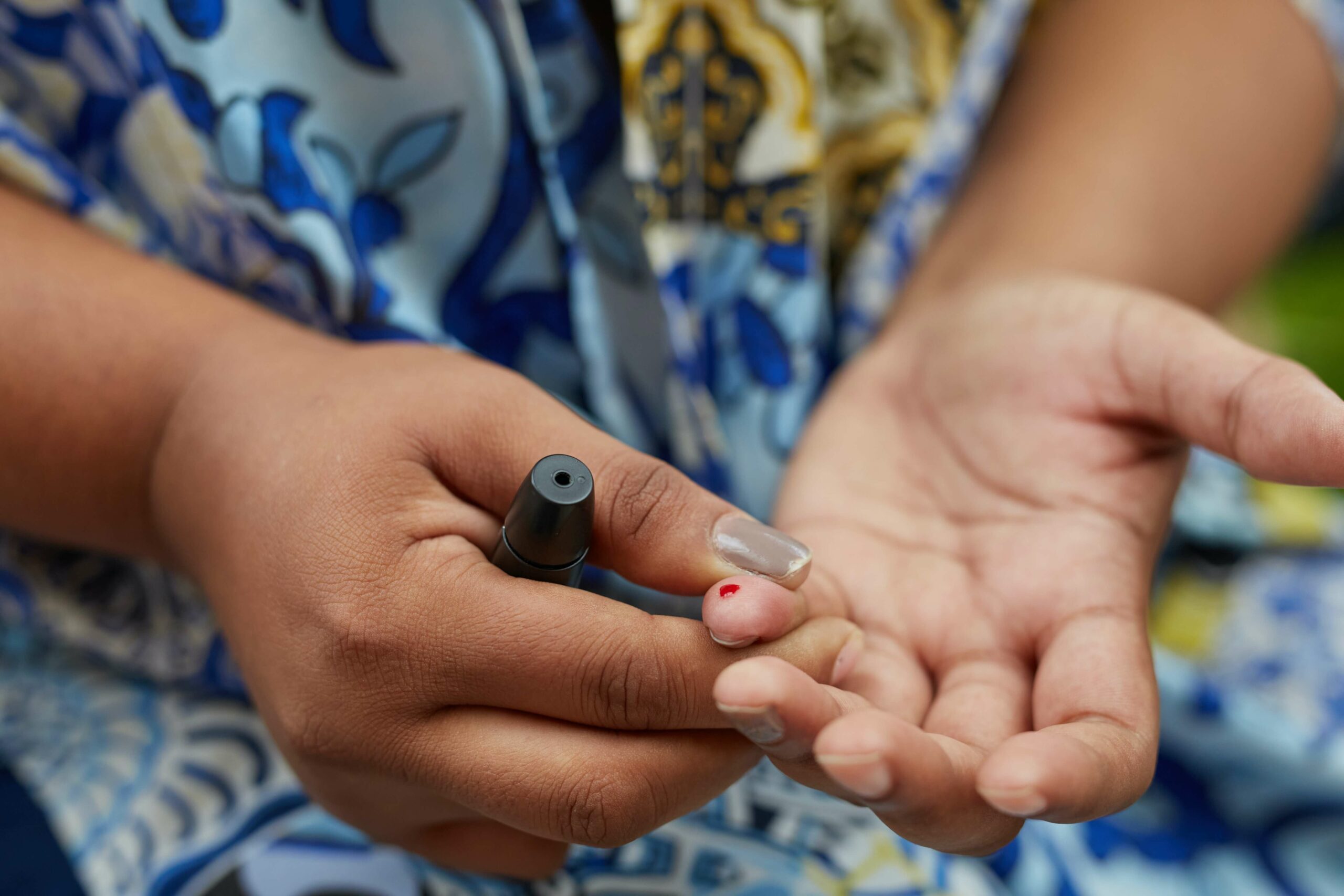Hormonal fluctuations experienced during perimenopause can result in disturbances in the blood glucose levels of individuals diagnosed with diabetes. Diabetic women, in particular, may encounter increased challenges in managing their blood glucose during this menopausal phase. The reduction in estrogen and progesterone levels, characteristic of menopause, can exert an impact on blood glucose regulation. Maintaining consistent and healthy blood glucose levels is of paramount importance for diabetic patients to avert potential complications.
Failure to effectively control blood glucose levels heightens the risk of developing complications such as diabetic foot ulcers, neuropathy, and nephropathy. It is strongly recommended that women with diabetes contemplating hormone replacement therapy seek professional medical advice and guidance.
The Link Between Diabetes Mellitus And Menopause
One prevalent symptom that women often encounter during menopause involves weight gain and alterations in body composition. These changes are attributed to the shifting fat distribution in a woman's body during this phase. An associated concern with weight gain is the potential for insulin resistance, which can elevate the risk of developing Type 2 diabetes mellitus.
What Is Insulin Resistance?
This is when the body does not respond to insulin that is released or injected into the body. Another term used is low sensitivity to insulin. Due to no response to insulin, glucose levels increase in the body. Insulin resistance is most associated with Type 2 diabetes, but it can also be associated with gestational and Type 1 diabetes.
The Link Between Weight Gain And Type 2 Diabetes
Type 2 diabetes is a chronic condition requiring regular monitoring of blood glucose levels. Uncontrolled high blood glucose levels can result in serious complications. It can have a negative impact on the following:
- Cardiovascular system – This increases the risk of stroke.
- Neuropathy – This increases the risk for nerve damage, diabetic patients often complain about a burning sensation or tingling in their feet and hands.
- Nephropathy – This increases the risk of renal failure.
- Retinopathy – This increases the risk of vision loss.
- Amputation – Diabetic patients struggle with wound healing resulting in amputation of limbs.
It is important to maintain a healthy BMI (body mass index) to avoid getting diagnosed with Type 2 diabetes. When a person is classified as overweight or obese the risk for developing Type 2 diabetes increases. The cells in their body become less sensitive to insulin which will lead to increased blood glucose levels.
How Does Menopause Affect Diabetes?
Oestrogen and progesterone levels drop during menopause. Blood sugar levels are affected by hormones and can make it difficult to manage diabetes. When oestrogen levels rise it can increase insulin sensitivity and lower blood sugar levels. This means blood sugar levels can rise during menopause since oestrogen production decreases. However, when progesterone levels rise, insulin sensitivity decreases and can cause higher blood glucose levels. This means that lower progesterone levels can lower blood glucose levels. It is very important for a diabetic patient going through menopause to consult a doctor before taking hormone replacement therapy as this can have an impact on the management of blood glucose levels.
How To Avoid Type 2 Diabetes During Menopause
Hormonal changes in menopausal women can result in weight gain. Maintaining a wholesome and active lifestyle can improve insulin sensitivity, ensuring stable blood glucose levels. This proactive strategy diminishes the chances of Type 2 diabetes, as well as the risks of heart disease and osteoporosis. Studies have suggested that including weightlifting exercises in your regimen can further reduce the risk of osteoporosis.
Managing Diabetes During Perimenopause
Reduced insulin sensitivity can occur as estrogen levels decline. Hormonal fluctuations can lead to erratic blood glucose levels in women, causing fluctuations from high to low without apparent cause. Estrogen's impact extends beyond blood glucose regulation; it also plays a role in heart protection by promoting blood vessel dilation. Consequently, the drop in estrogen during menopause can result in high blood pressure.
To manage blood glucose levels during menopause effectively, consider these tips:
- Frequent Blood Sugar Monitoring: Menopausal hot flushes can sometimes be confused with hypoglycemia (low glucose levels). Regularly checking blood glucose levels is essential to prevent hypoglycemia.
- Treatment Adjustments: Discuss insulin resistance management with Metformin as an option.
- Consult a Doctor about Hormone Replacement Therapy: It's crucial to consult a healthcare professional to explore the suitability of hormone replacement therapy, as it may not be safe for all women.
- Maintain a Healthy Diet: Due to the increased risk of cardiovascular diseases and osteoporosis associated with diabetes and lower estrogen levels, focus on a diet rich in fruits and vegetables. Consider vitamin D and calcium supplements during this phase.
- Stay Physically Active: Physical activity is beneficial for diabetes management and blood glucose control during menopause. To address concerns about hypoglycemia during exercise, keep healthy snacks readily available.
- Seek Support: Self-care is paramount when managing diabetes and navigating menopause. The support of friends and family can be invaluable during these times.
Is Menopause Worse For Diabetic Patients?
Diabetes, just as menopause does not only affect a woman physically but emotionally as well. Hormone fluctuations make it difficult for diabetic patients to control their blood glucose levels which makes menopause a bit more challenging than for someone without diabetes. Diabetes can affect the emotional well-being of a woman. Menopause symptoms do not make this easier for diabetic patients since women tend to experience more mood swings, anxiety, and stress. It is important for a woman with diabetes to surround herself with a good support structure to help her during this challenging time.


 71–75 Shelton Street, Covent Garden, London, WC2H 9JQ
71–75 Shelton Street, Covent Garden, London, WC2H 9JQ +44 (0) 20 3376 1032
+44 (0) 20 3376 1032



